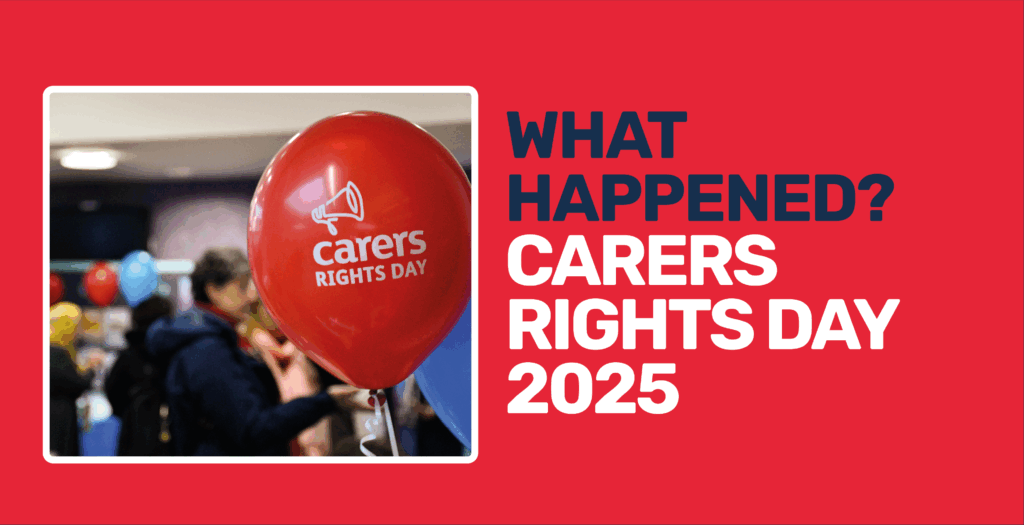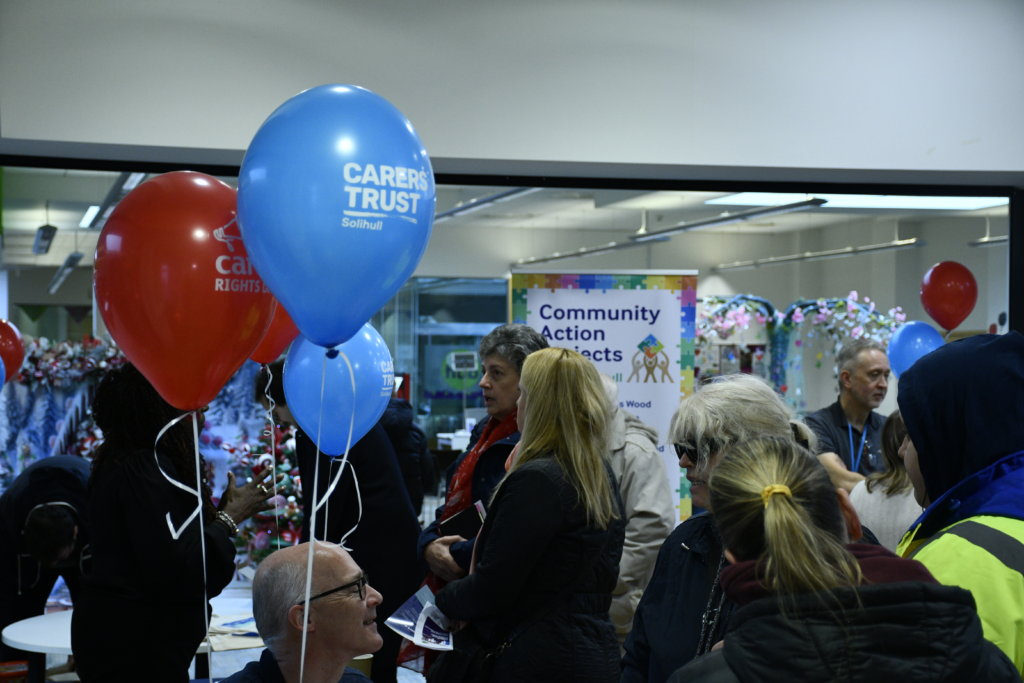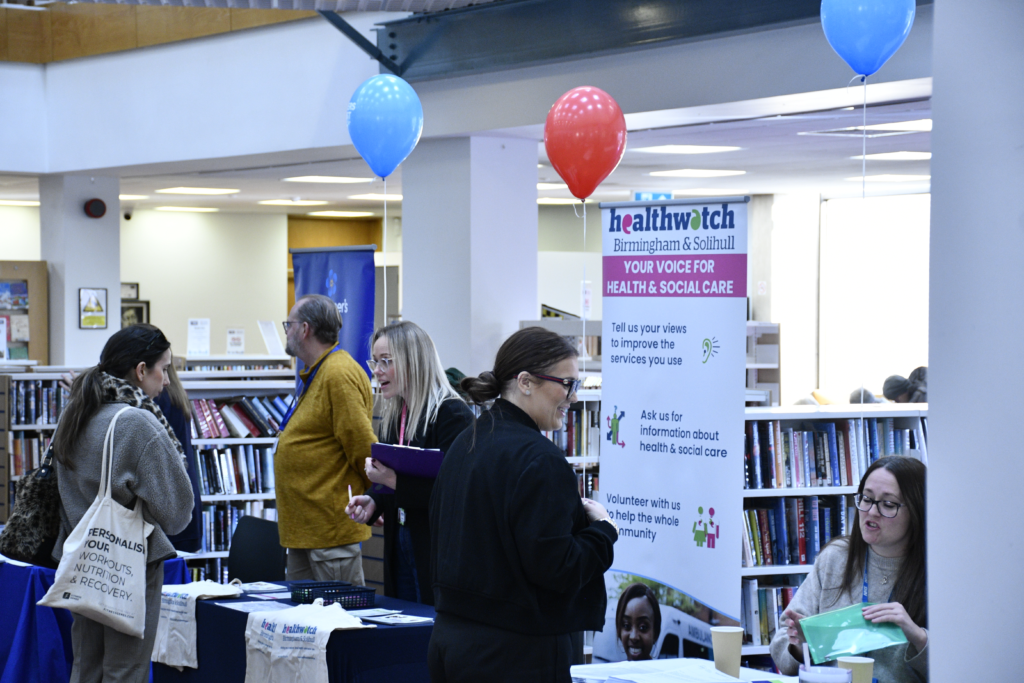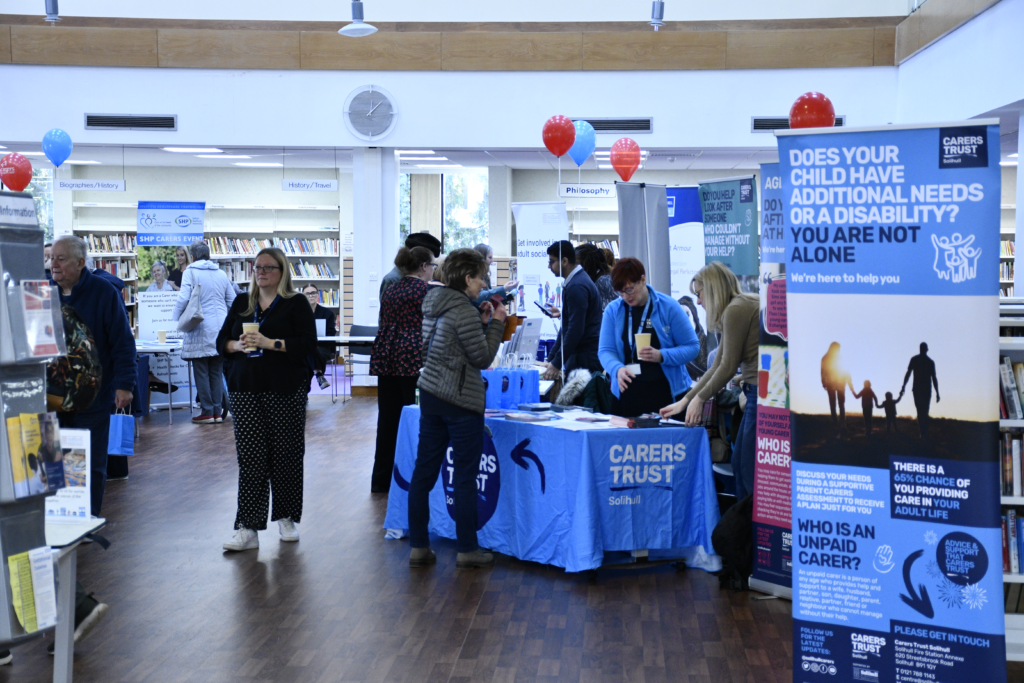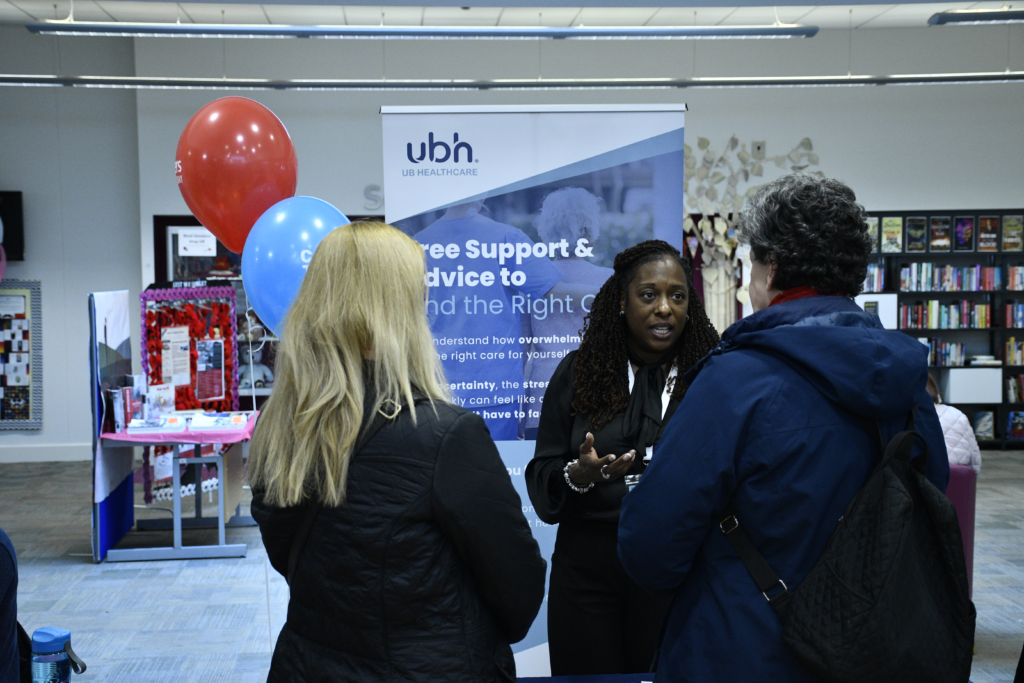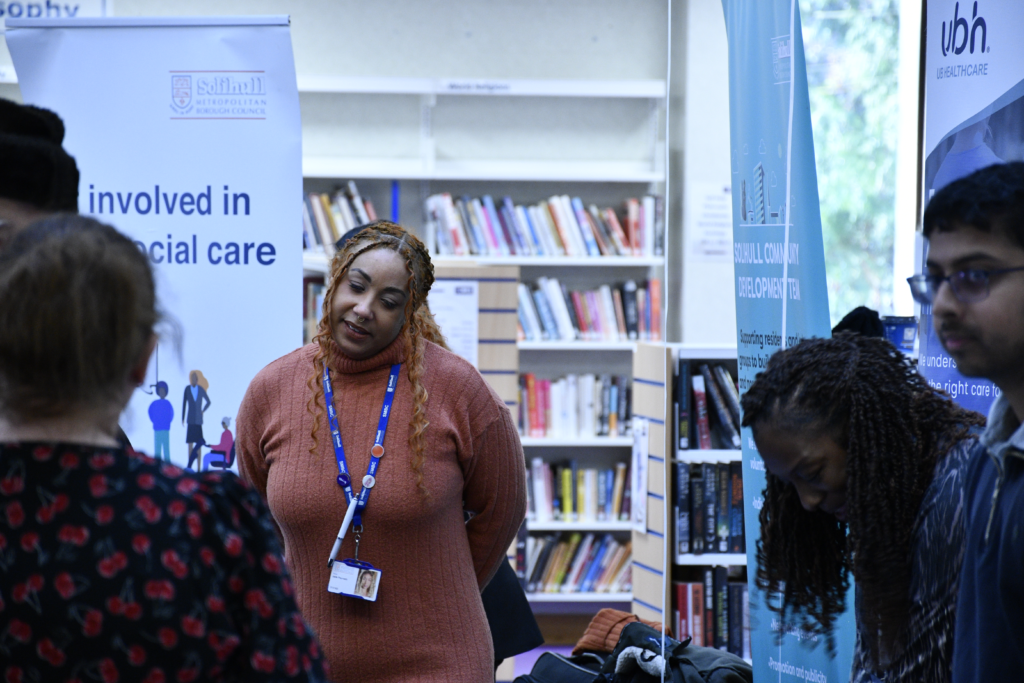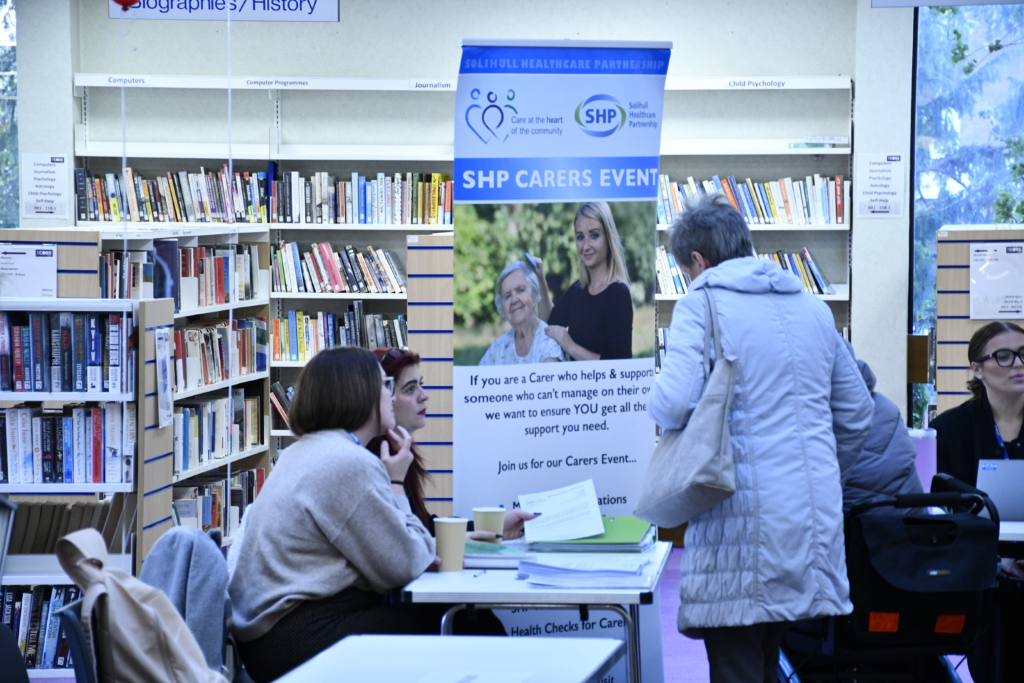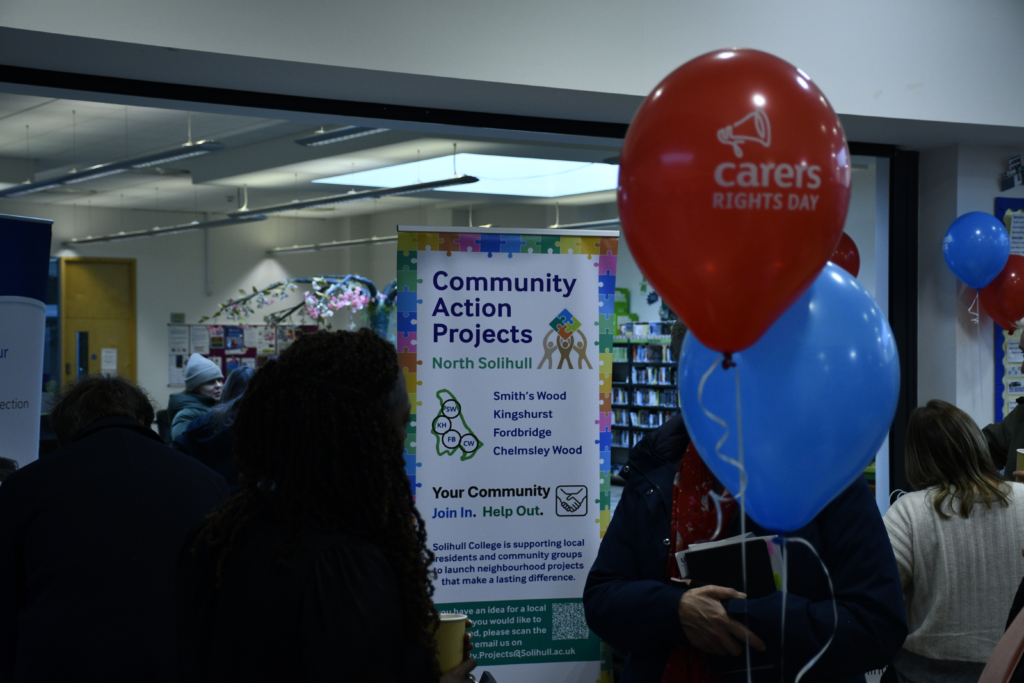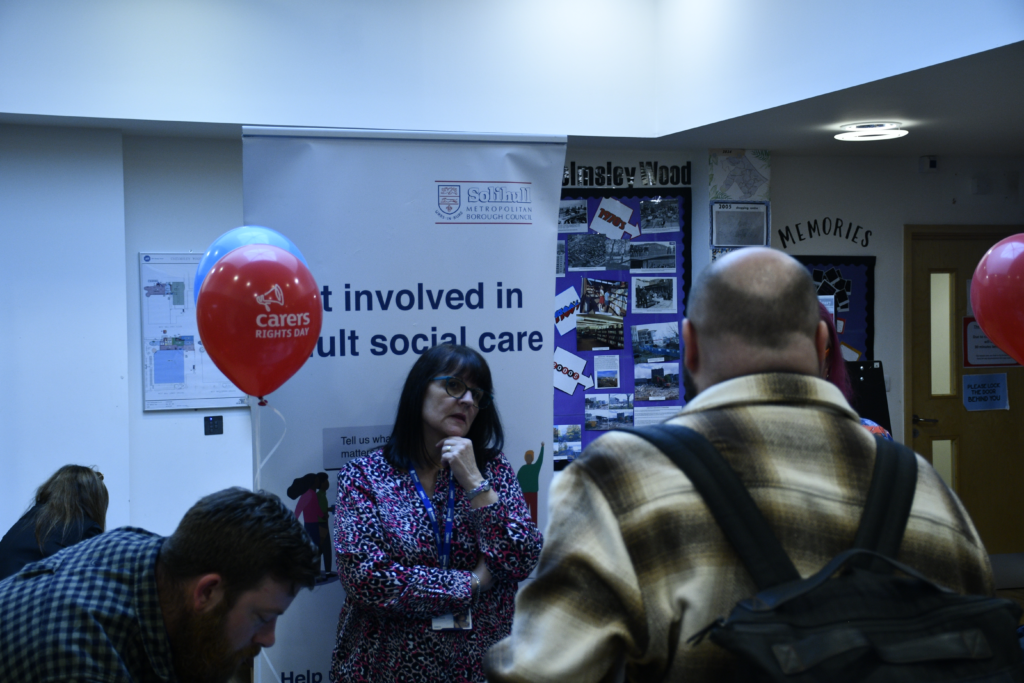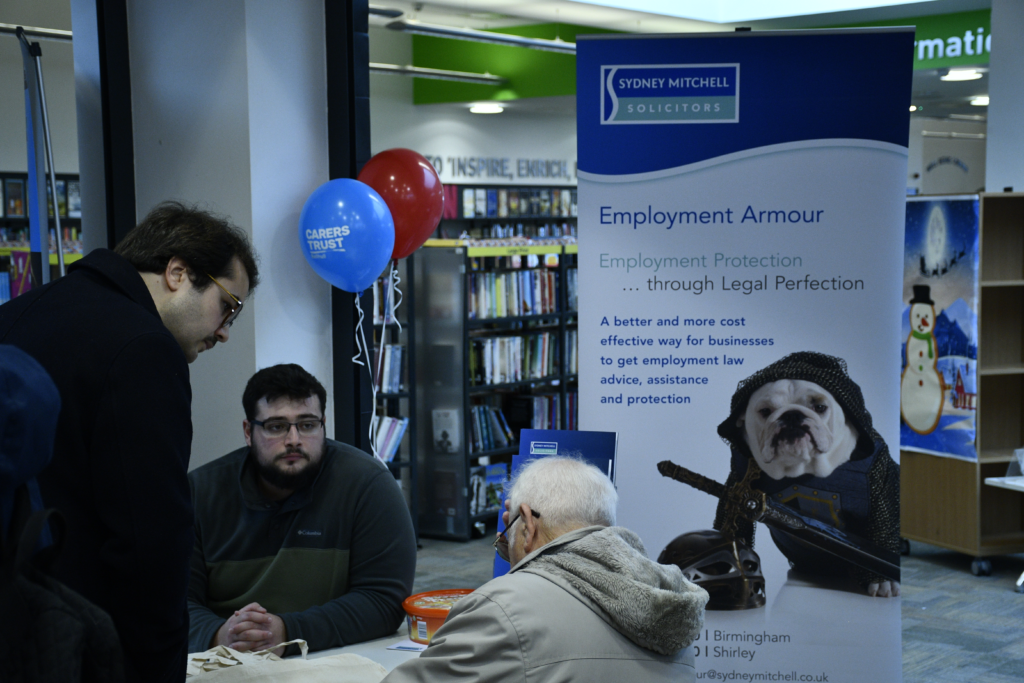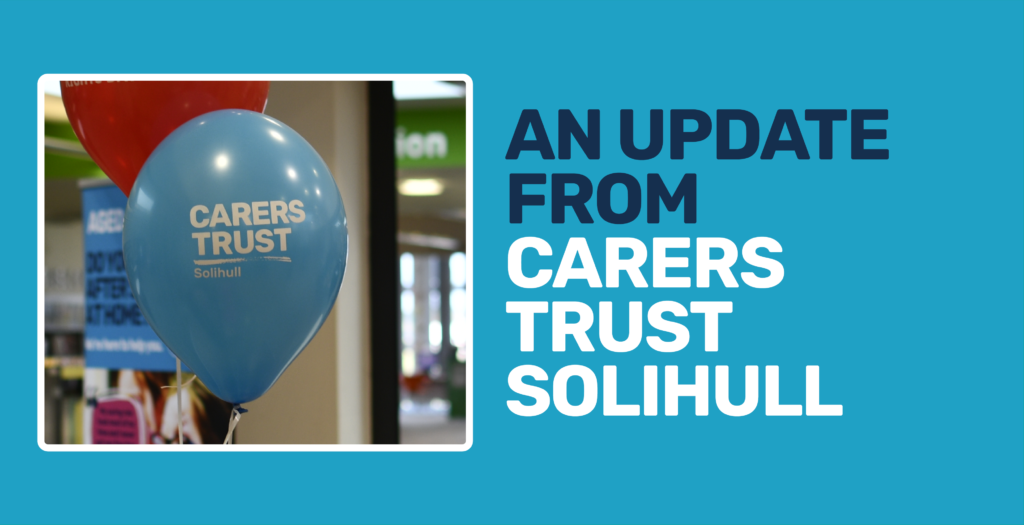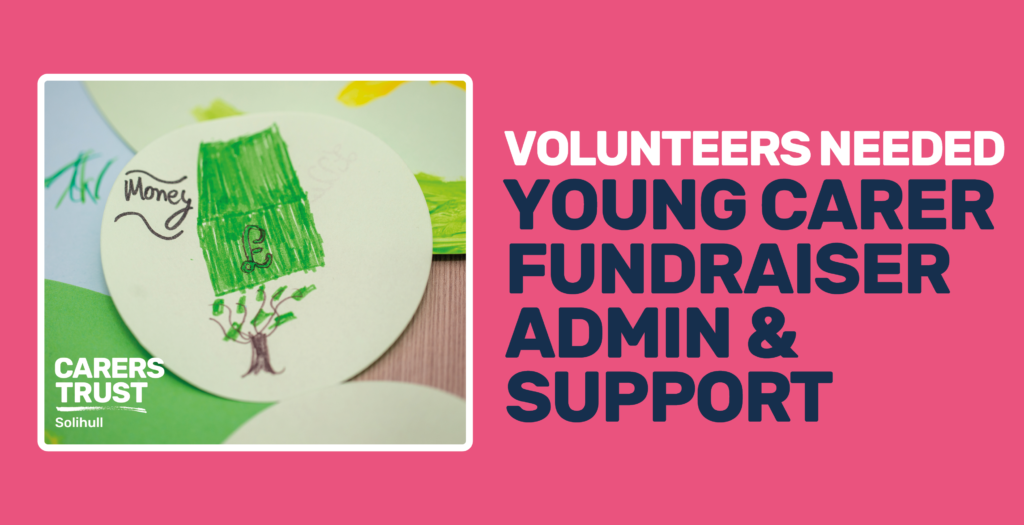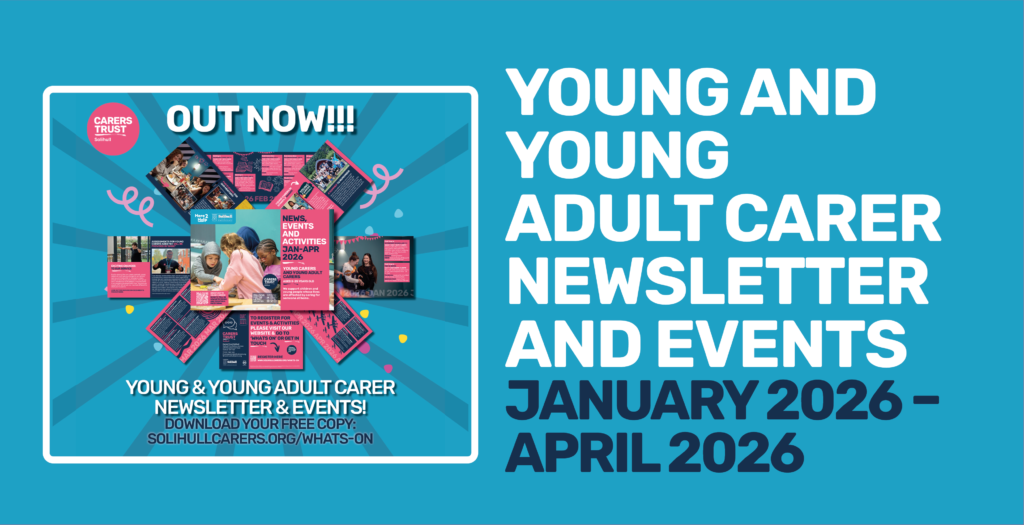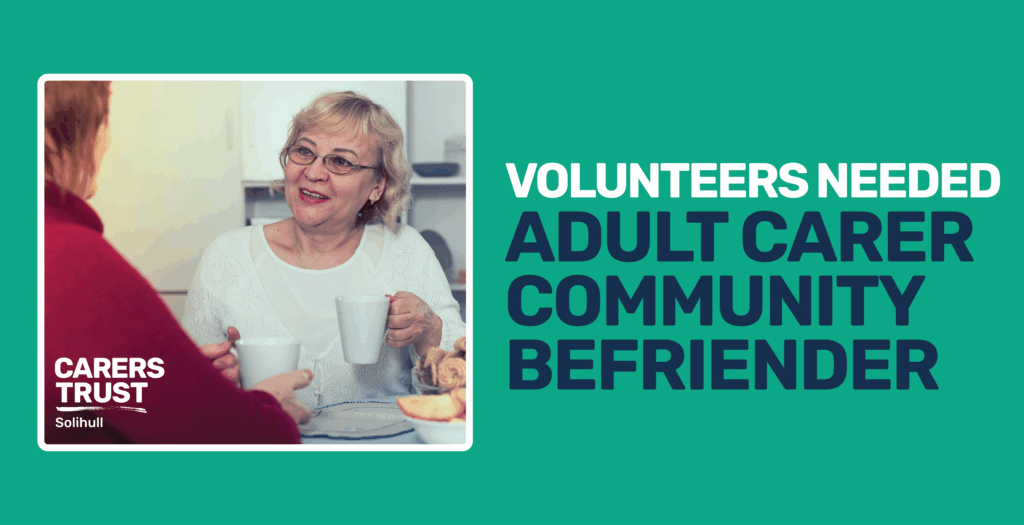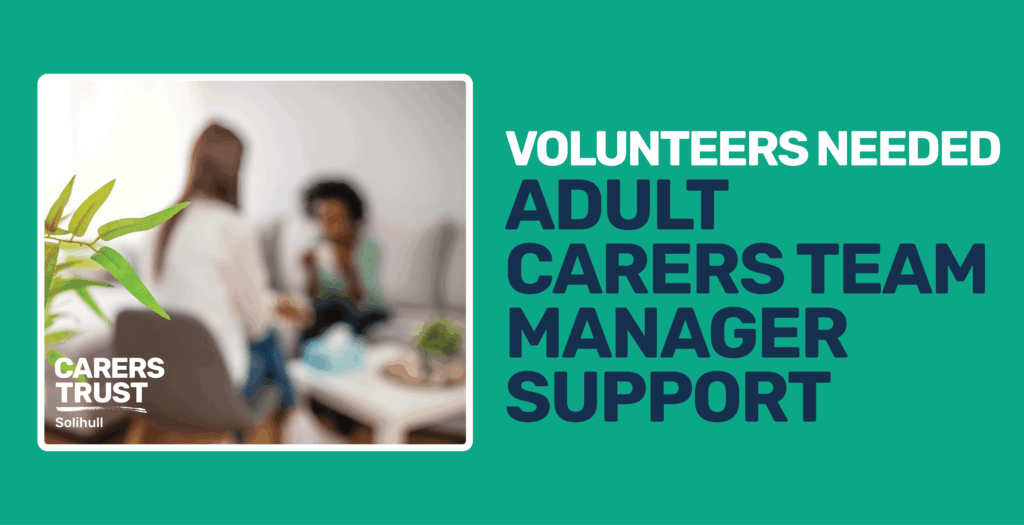Carers Rights Day What Happened?
Held on 19th and 20th November, we celebrated Carers Rights Day with dual events In North and South Solihull libraries. We were joined by other organisations and charities to provide unpaid carers with face-to-face advice, guidance and support.
We were greeted by familiar faces and lots of new ones too, who got the opportunity to speak to experts in their fields. It helped to change the usually peaceful libraries into hotbeds of face-to-face discussions about the rights of unpaid carers. From Wills and legal issues, to employment, training, and funding for care, as well as dedicated support for specific health concerns and conditions — the provided pastries and hot drinks on those chilly days also hit the spot.
Thank you to everyone who joined us to make both days special. Thank you to UB Healthcare for sponsoring and providing the refreshments for both events. Thank you to both Chelmsley Wood Library and The Core Library for being so welcoming to ourselves, our guest organisations and of course to our carers; familiar and new — we thank for being so friendly, positive and receptive when we know the struggles you face. We hope you received the help you needed, and you are enlightened and encouraged about your rights.
Thank you.
Below you’ll find some photos and videos from both events. Each organisation and charity present on the days, were amazing enough to participate on camera, and share with you the kind of support they can offer you!
If you couldn’t make it to the events, then the videos will give you a huge insight in to what’s available to you.
We also have resources for you to read regarding your rights. Whether you’re a young carer or an adult carer, you have rights and it’s our mission to make sure you know them.
We also have videos from previous Carers Rights Day events in our Videos Library that you may find helpful. In the past we have held, as some of you may know, panels with guest speakers that were there to answer your questions. As well as various organisations sharing their support and how they can help unpaid carers. We’re certain you can find something useful there to help you.
Your Rights
Unpaid carers face unique challenges—financial pressures, practical struggles, and emotional demands are all part of the caring journey. Nearly two-thirds of carers report being worried about covering basic living costs or managing in the future, with many cutting back on essentials like food and heating. Knowing where to turn, and understanding one’s rights, is essential.
Here, we have created a simple to use and easy to understand tool for you to see what rights you have as an unpaid carer; how you can be helped and supported. Just click the topic on the right to see more information.
We have also created “Your Guide to Carer’s Rights“, a more in-depth and thorough resource, to help breakdown the complications and confusion, and it works great as a companion piece with this page. Click the button below to read Your Guide to Carer’s Rights.
Financial
If you would like more in-depth explanation of the below information, you can read our guide to Carer’s Financial Support by clicking here.
Carer's Allowance
A benefit for individuals who provide at least 35 hours a week of care to someone on disability benefits. It’s not means-tested but can impact other benefits. Only one carer can claim per person cared for, and recipients receive National Insurance credits.
Click here to read Carer’s Essentials ‘Guide to Carer’s Allowance”.
Carer's Credit
A National Insurance credit to fill gaps in contribution records for carers providing 20+ hours of care per week (but less than 35), protecting future State Pension. It is not a payment and isn’t means-tested.
Click here to read more about Carer’s Credit with “Your Guide to Carer’s Financial Support”
Attendance Allowance
For individuals over State Pension age needing help due to disability or health conditions. It provides extra money (at two possible rates) depending on care needs and is not means-tested.
Click here to read more about Attendance Allowance with “Your Guide to Carer’s Financial Support”
Personal Independence Payment (PIP)
Supports people aged 16+ with long-term health conditions by covering extra daily living and mobility costs. Not means-tested. Assessed on how the condition impacts everyday life. Having a carer is not required to apply.
Click here to read more about PIP with “Your Guide to Carer’s Financial Support”
Disability Living Allowance (DLA) for Children
Financial support for children under 16 who require much more care or supervision than others their age due to disability. Award rates depend on the level of help needed and are not impacted by parents’ income or work status.
Click here to read more about DLA with “Your Guide to Carer’s Financial Support”
Energy Bill Support
Carers and those they care for can access various grants, cold weather payments, energy bill support, free safety checks, and debt funds. Charities, local schemes, and water bill reduction schemes also provide practical financial assistance.
Click here to read more about Energy Bill Support with “Your Guide to Carer’s Financial Support”
Council Tax Discounts
Unpaid carers may qualify for council tax discounts depending on their relationship and the cared-for person’s benefits. Further reductions for low-income or crisis situations exist. Notifications are important if household changes.
Click here to read more about Council Tax Discounts with “Your Guide to Carer’s Financial Support”
Legal Matters
Carer’s Assessment
All adult carers in England are entitled to a free assessment by their local council to identify needs for support, consider impact on all areas of life, and develop a personalised support plan (which may include a personal budget).
Learn more about Carer’s Assessments with Solihull Council by clicking here or using “Your Guide to Carer’s Assessments” by clicking here.
Parity of Esteem and Information Rights
The Care Act 2014 mandates that carers’ needs are valued equally to those of the people they care for. Councils must offer accessible information/advice and promote carer wellbeing, prevention, and advocacy.
Click here to read more about Parity and Information Rights with “Your Guide to Carer’s Rights”
Hospital Discharge and Complaints
Carers must be involved in planning for a loved one’s hospital discharge and have the right to complain if not properly included.
Click here to read more about Hospital Discharges and Complaints with “Your Guide to Carer’s Rights”
Power of Attorney, Wills, Probate, and Trusts
Guidance on making a Lasting Power of Attorney (LPA), writing a will, and managing estates or trusts to ensure financial and care decisions are legally protected, with support available via legal professionals and carer workshops.
Click here to read more about Power of Attorney and Wills with “Your Guide to Carer’s Rights”
Employment
Carer’s Leave
From April 2024, employees can take up to one week of unpaid leave per year for caring responsibilities, available from day one of employment and can be taken flexibly.
Click here to read more about Carer’s Leave with “Your Guide to Carer’s Rights”
Flexible Working
Carers can formally request changes to their work arrangements from the start of employment (no longer needing to wait 26 weeks). Employers must consider and consult before rejecting.
Click here to read more about Flexible Working with “Your Guide to Carer’s Rights” or read more here with “Your Guide to Carer’s Rights at Work”
Attendance Allowance
For individuals over State Pension age needing help due to disability or health conditions. It provides extra money (at two possible rates) depending on care needs and is not means-tested.
Click here to read more about Attendance Allowance with “Your Guide to Carer’s Rights”
Protection from Discrimination
The Equality Act 2010 protects carers against discrimination at work related to their association with a disabled person.
Parental Leave
Parents or those with legal parental responsibility for a child under 18 (employed for at least a year) have the right to up to 18 weeks’ unpaid leave per child, normally up to four weeks per year, plus bereavement leave if needed.
Click here to read more about Parental Leave Rights with “Your Guide to Carer’s Rights”
Emergency and Wellbeing
Continuing Healthcare (CHC)
Some people with long-term complex health needs qualify for free health and social care arranged and funded solely by the NHS. This is known as NHS continuing healthcare.
We have, in partnership with UB Healthcare, produced a Continuing Healthcare guide, to explain all the details of CHC and it’s funding.
Emergency and Contingency Planning
Carers are encouraged to develop a contingency plan (templates and support available) to ensure the cared-for person has support in emergencies, with advice on keeping the plan up to date and communicating it to others.
Click here to read more about Emergency and Contingency Planning with “Your Guide to Carer’s Rights”
Crisis Support and Mental Health Resources
Carers can access helplines, drop-in centres, advice on self-soothing, online therapies, and urgent mental health assistance tailored specifically for unpaid carers.
Click here for more help with “Your Guide to Carer’s Rights”
Health and Wellbeing Support
Carers can access mental health support, wellbeing workshops, health toolkits, resilience-building programs, and local NHS and charity resources to manage their own health while caring for someone else.
Click here to learn more with our Health and Wellbeing Resources
Respite Rights
Carers can access respite through council services after an assessment, offering funded breaks, day centres, care at home, and support from family, the NHS, or charities. Some options may require self-funding or grants.
Click here to read more about Respite with “Your Guide to Carer’s Rights”
Social and Community Support
Carers can join support groups, social events, and well-being sessions—often run by local carer organisations—to reduce isolation, get practical help, and meet others who understand their situation.
Young Carer Rights
Young carers have the right to be identified as unpaid carers. However, one of the most difficult aspects is young people themselves being made aware they are carers. For this reason, we are now targeting settings that young carers may be. If you see us there delivering our information packs, then don’t forget to say hi!
Young carers (aged 5–18) and young adult carers (16–25) in Solihull are protected both by strong legal rights and a comprehensive support system tailored to their needs. Key British legislation—namely, the Care Act 2014, Children and Families Act 2014, and Human Rights Act 1998—requires that local authorities must proactively identify young carers, offer them proper assessments, and deliver support that safeguards their health, development, and wellbeing.
Safeguarding is at the heart of this framework, obliging services to protect children from harm, prevent inappropriate caring roles, and ensure safe, nurturing environments for every young person.
Carers Trust Solihull provides a wide range of practical support, beginning with a personalised assessment and continuing through bespoke support plans covering health, education, work, social life, and emotional wellbeing.

Noah, pictured, started his journey with us as a young carer at the just 13 years old. He has received ongoing support and now, as a young adult carer, provides support to the new generation of young carers. He has been an outstanding mentor and befriender to them, and is really pleased to continue his journey with us.
Thank you Noah!
Young Carers Rights & Carers Trust Solihull
Young Carer Assessment
A young carers assessment helps to understand daily life and what support is needed; it’s simply an informal conversation with a support worker rather than a test. The assessment explores the caring tasks carried out at home, the impact on social life, health, and education, and considers both current and possible future support for the young carer and their family. Afterwards, a support plan is put together by the support worker, detailing practical ideas and resources to help in your caring role.
Register with us as the first step to receiving your Carer’s Assessment
Learn more about Carer’s Assessments using “Your Guide to Carer’s Assessments”
Educational Support for Young Carers
Schools are required to identify and proactively support young carers, designating leads, offering flexible policies, and participating in national award schemes (like Young Carers in Schools) to reduce stigma and provide tailored help.
Learn more about Keeping Children Safe in School
Learn more about the Young Carers in School
Programme (YCiS) here and here
Learn more about Education Support
Learn more about Young Carers in Education (Carers Trust)
Young Carers in School (YCiS) Programme
Around one in five secondary school students is estimated to be a young carer, though official school census data in 2024 showed that only 0.6% of pupils (about 53,976 nationally) were recorded as young carers—a significant under-identification likely due to low awareness and inconsistent recording practices in schools.
The Young Carers in Schools (YCiS) programme, led by Carers Trust and The Children’s Society, provides a structured approach for schools to better identify, support, and celebrate young carers, addressing this gap and advocating for best practice.
Learn more about the Young Carers in School Programme here and here
Decision Making Group (DMG)
Here at Carers Trust Solihull, our Young and Young Adult Carers hold a Decision Making Group (DMG). Using their experience and first-hand knowledge, they provide us with insight into how our service can be improved to better support them.
To align with our new contract with Solihull Council, which begins on 1st December 2025, they told us what topics they wanted from group support work, training and wellbeing sessions, and trips on our activities programme, their venues of choice and what resources they’d like available to them. They told us how they preferred to have their assessments or support work and how they wish to be contacted. They also shared messages to send to the commissioner of our service. This allowed young carers to demonstrate their right to
